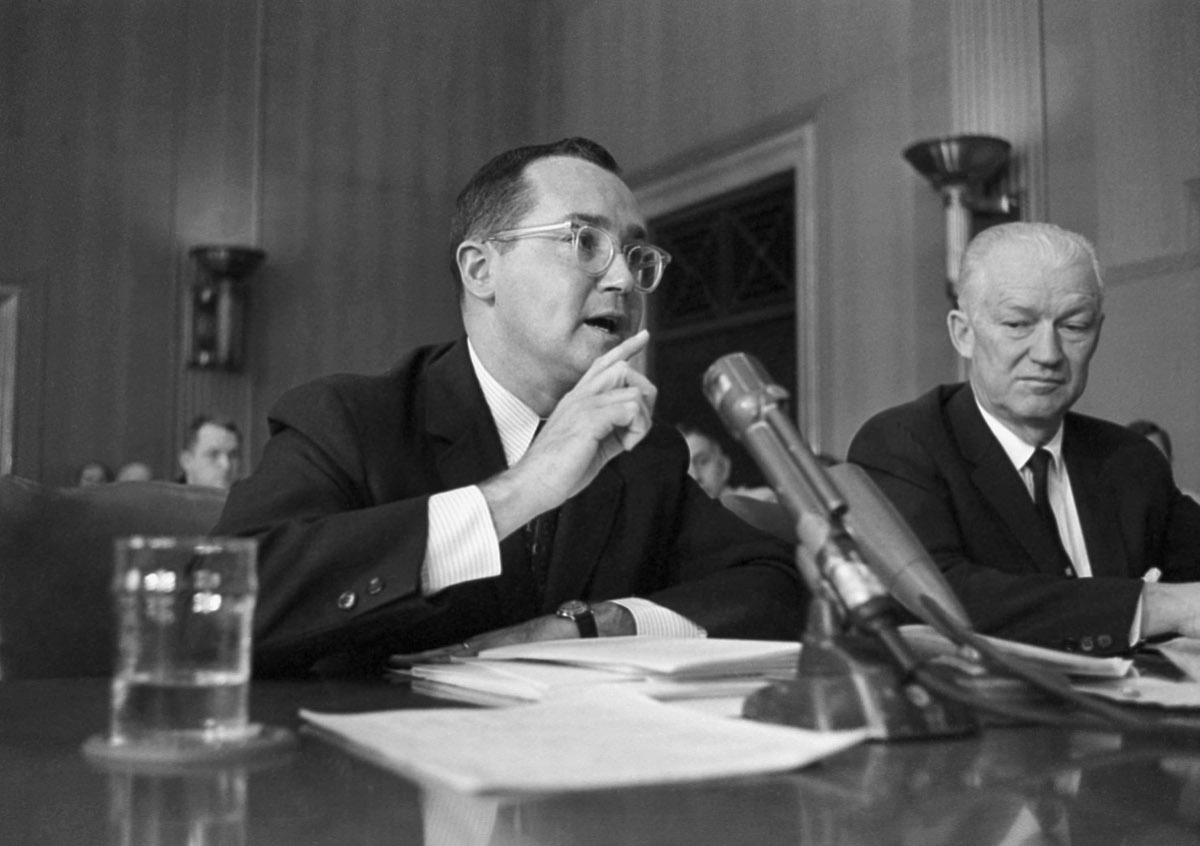
On May 9, 1961, Newton N. Minow stepped to the microphone in front of a meeting of the National Association of Broadcasters in Washington, D.C. Minow had recently been named chairman of the Federal Communications Commission, and this would be his first speech.
After telling those gathered that he had admiration and respect for the “honorable profession” of broadcasting, he cut to the theme of his remarks: how television could uphold the public interest. And it was clear he felt that goal was not yet being met:
When television is good, nothing — not the theater, not the magazines or newspapers — nothing is better.
But when television is bad, nothing is worse. I invite each of you to sit down in front of your television set when your station goes on the air and stay there, for a day, without a book, without a magazine, without a newspaper, without a profit and loss sheet or a rating book to distract you. Keep your eyes glued to that set until the station signs off. I can assure you that what you will observe is a vast wasteland.
You will see a procession of game shows, formula comedies about totally unbelievable families, blood and thunder, mayhem, violence, sadism, murder, western bad men, western good men, private eyes, gangsters, more violence, and cartoons. And endlessly, commercials — many screaming, cajoling, and offending. And most of all, boredom. True, you’ll see a few things you will enjoy. But they will be very, very few. And if you think I exaggerate, I only ask you to try it.
The phrase with which he described television—a “vast wasteland”—would stick, cementing the speech in the annals of rhetoric. (The person who came up with the phrase was journalist John Bartlow Martin.)
Get your history fix in one place: sign up for the weekly TIME History newsletter
The reason television needed to be better, Minow said, was bigger than entertainment. During the Cold War, the communications potential of television needed to be put to use for the cause of helping democracy defeat communism. In such a time, he said, “the old complacent, unbalanced fare of action-adventure and situation comedies is simply not good enough.”
Though Minow was adamant that his FCC had no intention to “muzzle or censor broadcasting,” he did note that the FCC had the power to refuse to reissue broadcasting licenses. The audience, TIME reported, “took the speech as a deliberate tactic to scare stations and networks into better programing, and as a hint that they should do something about it soon.”
The speech is acknowledged to have helped steer the development of what was still a young medium, though some might argue that television is even more violent and bloody than it was 55 years ago–Minow had never seen Game of Thrones, after all. While the mayhem would endure, educational and informative programming, like the network news, advanced in scope during Minow’s tenure. And, of course, the medium acquired a new moniker.
In 2011, Minow told AdvertisingAge that greater consumer choice was the most important improvement in television in the decades that had elapsed since his speech—that by getting “vaster,” television was necessarily less of a wasteland.
Read TIME’s full coverage of the speech, from 1961, here in the TIME Vault: “The People Own the Air”
More Must-Reads from TIME
- Cybersecurity Experts Are Sounding the Alarm on DOGE
- Meet the 2025 Women of the Year
- The Harsh Truth About Disability Inclusion
- Why Do More Young Adults Have Cancer?
- Colman Domingo Leads With Radical Love
- How to Get Better at Doing Things Alone
- Michelle Zauner Stares Down the Darkness
Write to Lily Rothman at lily.rothman@time.com